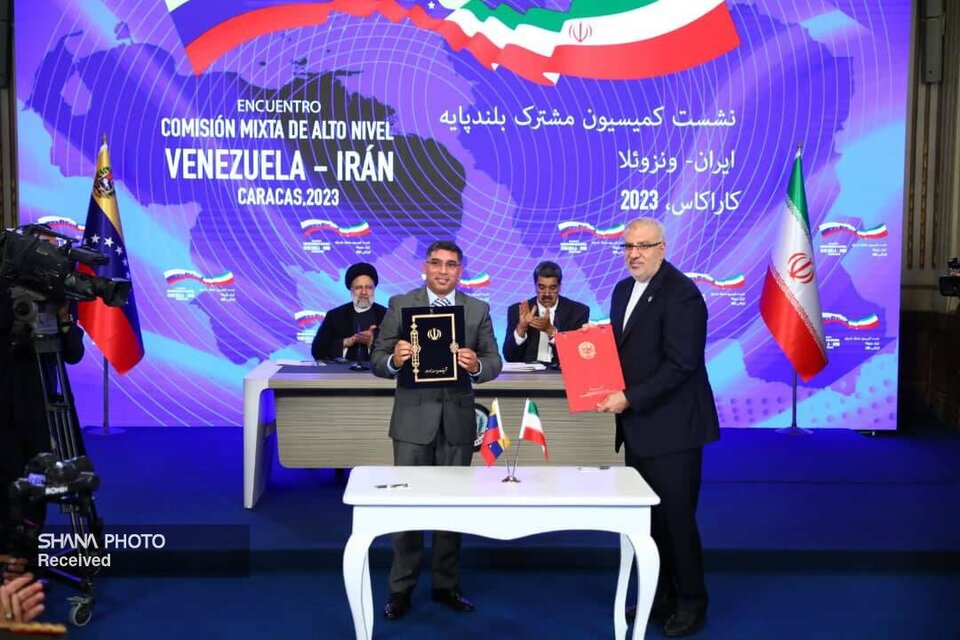The minister, who is paying a visit to the Venezuelan capital Caracas, made the remarks in his talks with Iran’s TV Channel 1, adding Venezuela’s petrochemical complexes had come to a standstill due to sanctions.
Iran decided to help the Latin American country restore its output capacity and produce petrochemicals like ammonia, urea, polyethylene, he continued, expressing hope that Iranian companies’ expertise in technical and engineering and catalyst sectors will help Venezuela fulfill its petrochemical potential and offer products in international markets.
Owji said Iran’s petrochemical offer came after the country’s Ministry of Petroleum under the 13th (incumbent) administration started overhauling and developing Venezuela’s refineries and exporting oil and gas condensates.
Having a refining capacity of 1.4 million barrels per day (bpd), the four refineries of Venezuela had been abandoned due to sanctions and foreign experts’ withdrawal from projects, recalled the minister, adding the 13th administration promoted energy diplomacy and held talks with Venezuela before reinvigorating its oil industry.
Up to now, Iran has exported 2.8 million homegrown pieces and equipment to Venezuela to make its oil refineries operate at full capacity, he said and continued a considerable part of the Latin American country’s refining capacity has been restored.
Contracts and documents
Owji said Tehran and Caracas on Monday signed several documents and contracts to cooperate in the downstream and upstream sectors of the oil and gas industry.
Owji and his Venezuelan counterpart inked the contracts to develop oil fields and terminals and restore refining and petrochemical capacities.
Tehran-Caracas cooperation in the oil sector has been promoted since the 13th administration took over.
Their relations entered a new phase last year, when the two sides signed a contract to develop Venezuela’s refineries through using Iran’s technical know-how and equipment.
Iran and Venezuela hold about 40 percent of the world’s oil reserves and both countries’ oil sectors have been hit by U.S. unilateral sanctions.
In spite of sanctions, Iran has managed to make 85 percent of equipment needed by the oil industry, not only meeting domestic needs with homegrown equipment, but also exporting its technical and engineering services to regional countries and other oil-rich states, including Venezuela.
Accompanied by a number of ministers and other top officials, Iran’s President Seyyed Ebrahim Raeisi on Monday started his tour of Venezuela, Nicaragua, and Cuba.


Your Comment